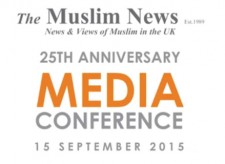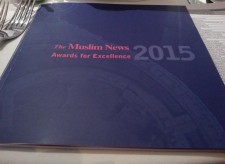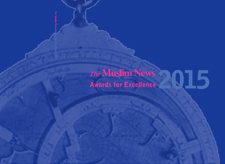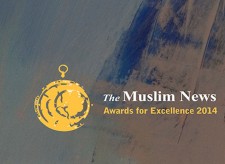Abu Yusra Chowdhury
The government unveiled an updated definition of extremism in Parliament last month, a move it claims will identify but not criminalise those deemed extremist.
The definition, as outlined by the government, characterises extremism as “the promotion or advancement of an ideology based on violence, hatred, or intolerance, that aims to: negate or destroy the fundamental rights and freedoms of others; or undermine, overturn or replace the UK’s system of liberal parliamentary democracy and democratic rights” or “intentionally create a permissive environment” for extremism.
Justifying the definition, Levelling-up Secretary Michael Gove claimed the previous definition was “insufficiently precise” and had been “insufficiently policed”. The new definition comes with new measures: those deemed extremist will be denied any contact or funding by the government but will not be proscribed as terrorist organisations and therefore banned.
Michael Gove was accused of abusing Parliamentary privilege by naming groups that would be “assessed” against the new government definition.
The groups named include far-right organisations including the British National Socialist Movement and Patriotic Alternative. Muslim groups named included the advocacy group Mend, the human rights organisation Cage, and the Muslim Association of Britain.
The Secretary of State described the groups as “Islamist” without referencing the contested notions behind the term and how each of the groups lives up to Gove’s initial assessment.
Some of the organisations have threatened legal action and challenged Gove to repeat his assertion outside Parliament. Ragheb Altikriti, Chair of the Muslim Association of Britain said: “Singling out mainstream, law-abiding British Muslim organisations who have contributed to the common good, sets a dangerous precedent undermining democracy, religious freedoms, and free speech.”
Ahead of the announcement, there was feverish speculation in government-supporting media that the Muslim Council of Britain (MCB), the country’s largest representative body, would also be added to Gove’s watchlist.
While the group was eventually omitted from the list, Gove nevertheless declined to rule out the MCB’s future inclusion on such a list in Parliament.
Responding to the announcement, Zara Mohammed, Secretary General of the MCB posed a series of questions for the government: “As the government presses ahead with its flawed proposals, many of us are questioning: on what grounds are these groups being labelled as extremists, and will there be legal avenues to challenge such determinations imposed by the government?
Furthermore, will the criteria for identifying extremism be uniformly applied irrespective of faith? Will vocal extremists who support the Conservative Party also be subject to these new measures? Lastly, will government ministers exploit parliamentary privilege to publicly name these groups, thus denying them the chance to defend themselves?”
Gove claimed that the definition would govern only government engagement and funding, while NGOs would make their own judgments. He stressed the importance of tightening the definition to better protect free speech and clarified that it would not lead to bans but guide government engagement.
The new definition has received a largely negative response across the spectrum. Right-wing MP Miriam Coates spoke of the definition’s “chilling impact on free speech”, particularly for Christian activists.
The Scottish Nationalist Party’s Alison Thewliss said in Parliament that “Muslims are afraid to speak out, lest they be targeted for their beliefs or, indeed, labelled as extremists.”
In a joint letter issued prior to the government announcement, the Archbishops of Canterbury and York made a significant intervention in the debate. They argued that the definition “risks disproportionately targeting Muslim communities, who are already experiencing rising levels of hate and abuse.”
Justin Welby and Stephen Cottrell urged the government to “pursue policies that bring us together, not risk driving us apart.”
They were joined by several civil rights groups and other faith leaders in issuing warnings about the definition. In a joint letter by anti-extremism campaigners and three previous Home Secretaries, Priti Patel, Sajid Javid and Amber Rudd, the government was urged not to politicise the definition of extremism for short-term advantage.
The government’s controversial policy comes amid growing accusations that the Conservative Party itself has a problem with extremism.
In the past few weeks, prominent party members have come under scrutiny for promoting hatred against Muslims and racism. In scrutinising the Levelling Up Secretary’s new extremism definition, several MPs questioned why prominent members of the Conservative Party should not be subjected to the new definition.
Imran Hussain MP said, “If the Secretary of State is serious about addressing these issues, I ask him to condemn the extremist, vile and dangerous language used by some of his own Back Benchers and some of the Tory donors who are bankrolling his party.”
When it comes to Islam and Muslims, Gove has long courted controversy. In his book ‘Celsius 7/7’ written after the London terror attacks of 2005, Gove claimed with questionable polling data that a “sizable minority of Britain’s Muslims hold ‘rejectionist Islamist views’”.
“These views were not developed in a vacuum,” claims Gove. “They reflect the influence of organised work by those sympathetic to an Islamist agenda in the UK.” One chapter in the book is titled ‘Trojan Horse’, a term that would appear again when Gove later became Education Secretary, and a false letter was used to allege a supposed ‘Islamist’ takeover of state schools in Birmingham.
It remains to be seen whether Gove’s consistent agenda laid out early on in his career will continue to have a policy impact on Muslim communities almost 20 years on.
Photo: Communities Secretary Michael Gove presenting the new definition of Extremism in Parliament On March 14, 2024. (Credit: Maria Unger/UK Parliament)
READ MORE
Galloway vows to challenge Labour in Manchester as he slams Tory’s pre-election ‘culture war’
Editorial: Muslims only faith community targeted by new definition of extremism
Comment: New definition of extremism is potentially suppression of genuine political sentiments

















